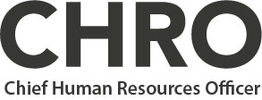Gemmie Hermens: Aligning with business and delivering quality will keep HR relevant
"We have a central position as the HR department," says Gemmie Hermens, HR Director of McGregor Fashion Group, about the relevance of HR in today's business world. While HR is very relevant, she adds, to remain as such it needs to deliver quality, and do things well. While this may seem a simple-enough concept, actually delivering quality is more complicated. Thus, HR needs to be in tune with the business's needs, she says. "It's important to know that we are aligned and to know what the needs of the business are, and when policies and procedures need to be changed because the business has changed, assist business in doing so." When business is not altogether clear on what those needs might be, HR needs to help them figure it out, she adds, and with this comes the need to challenge management.
In a sector currently fraught with uncertainty, Hermens says she has learnt to do a lot with very little, referring to her small but strong team and limited financial resources. “A lot of colleagues’ companies are broke. We are lucky because we’re in a higher, more expensive segment of the market,” she says. “But we have a lot of challenges because we need to get the right people on the right job. It seems simple but it’s difficult. We have to consider how we tell our story to our customers but also to potential employees, and how to get employees to buy into our brand and realise it’s a fantastic organisation. We don’t have a lot of money so we need to be enterprising.”
Hermens describes herself as hands-on, doing much of the work herself, and helping develop her team along the way. Working with a young and dynamic team such as the one she currently manages brings her great joy, she says. “They are enthusiastic and want to learn. We work to help each other, train each other and improve each other; to make each other more enthusiast and do a good job. The difference comes with the people.”
Hermens has worked in HR for close on two decades and has been a part of the McGregor team for two years. In this relatively short period of time, she has seen plentiful changes at the company. “Things have changed radically because when I first started at the McGregor Fashion Group, HR was more like an administrative office. I’ve tried to make it more disciplined and aligned with the business, because it wasn’t aligned.” To do this, Hermens says she had to separate administration from the HR business partnership. She also implemented a series of policies and processes at the company, as nearly none existed. One of her most recent achievements was the instituting of performance development plans, with meetings held three times a year to set key performance indicators (KPIs), conduct in-between evaluations and end-year reviews.
Other important changes include the hiring of an international recruiter and new HR business partner. “The participation of HR in recruitment is a huge topic,” Hermens says. Having an international recruiter with a great knowledge of ATS systems, Google networks and ads, knowledge recruitment channels and who is also in contact with head-hunters helps. The recruiter is also responsible for employer branding, including HR branding within the company, she says.
The company also has an HR representative in both Germany and Belgium/France, and Hermens says the team is now working together globally on policies and implementing one policy across all locations. “There was no insight into global employee data when I came, now there is,” she says. “We’ve built our own global HR system. We have a solution in the Cloud and can roll that out across the countries.” However, she feels they still have a way to go before the company is where it needs to be.
Asked if she could change just one thing about HR what it would be Hermens answers: “We need to stop with conservative HR and be more aligned with the business; be more of a business partner. Many companies call their HR managers business partners but they are not working in that way. They need to be a part of the business and not be separate from it. Also to be accepted and to have really added value to the business – that’s the most important thing. But that’s difficult because a lot of companies are conservative and don’t or are not ready working that way. I try to lead by example.”













